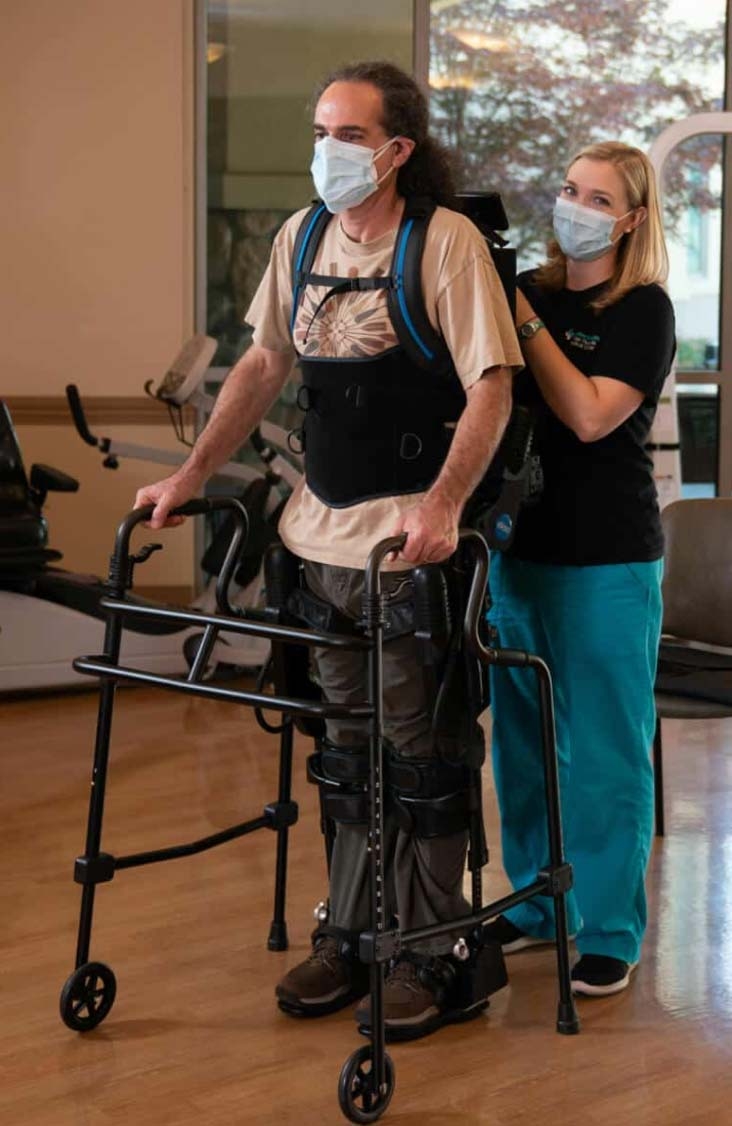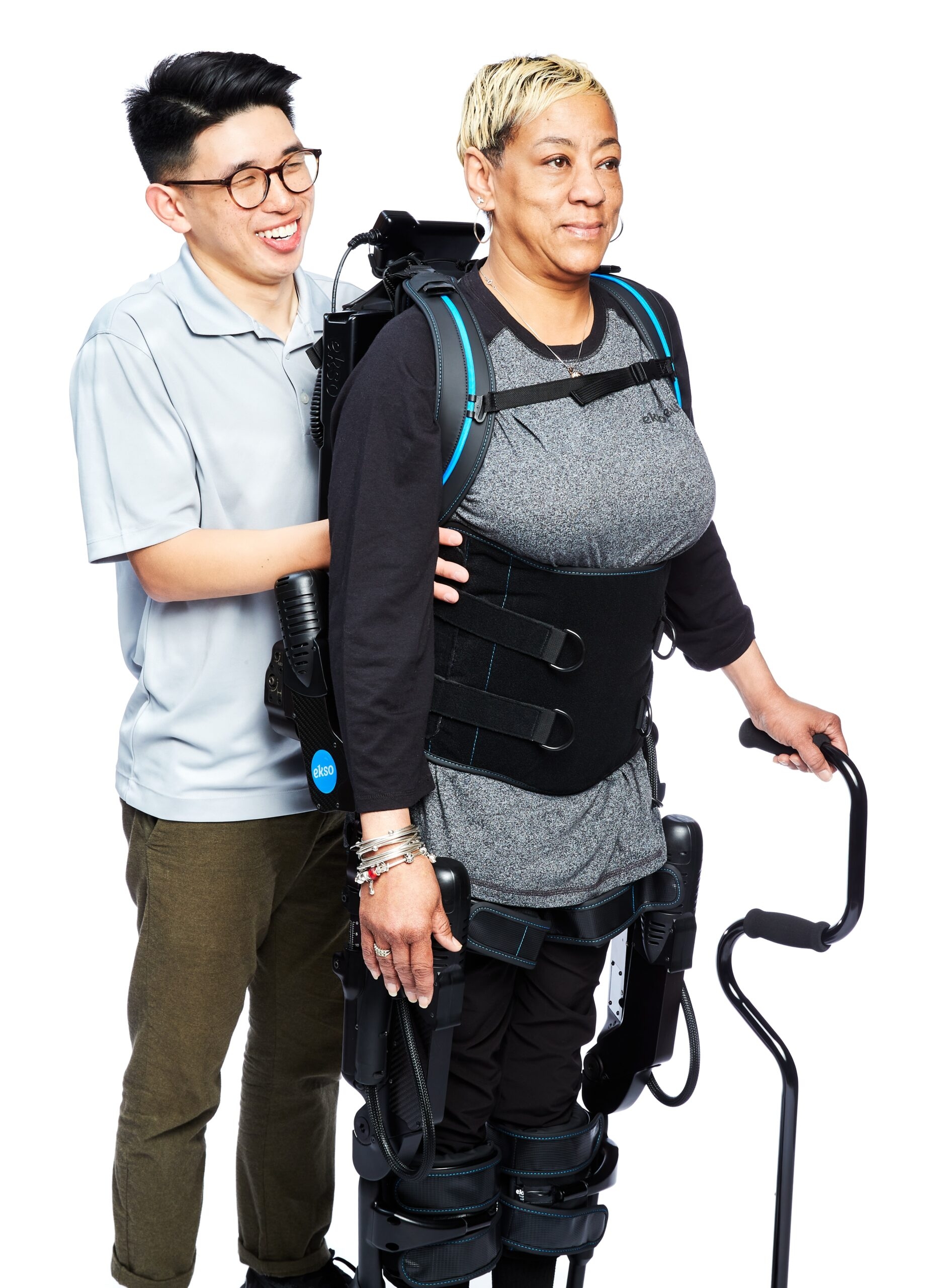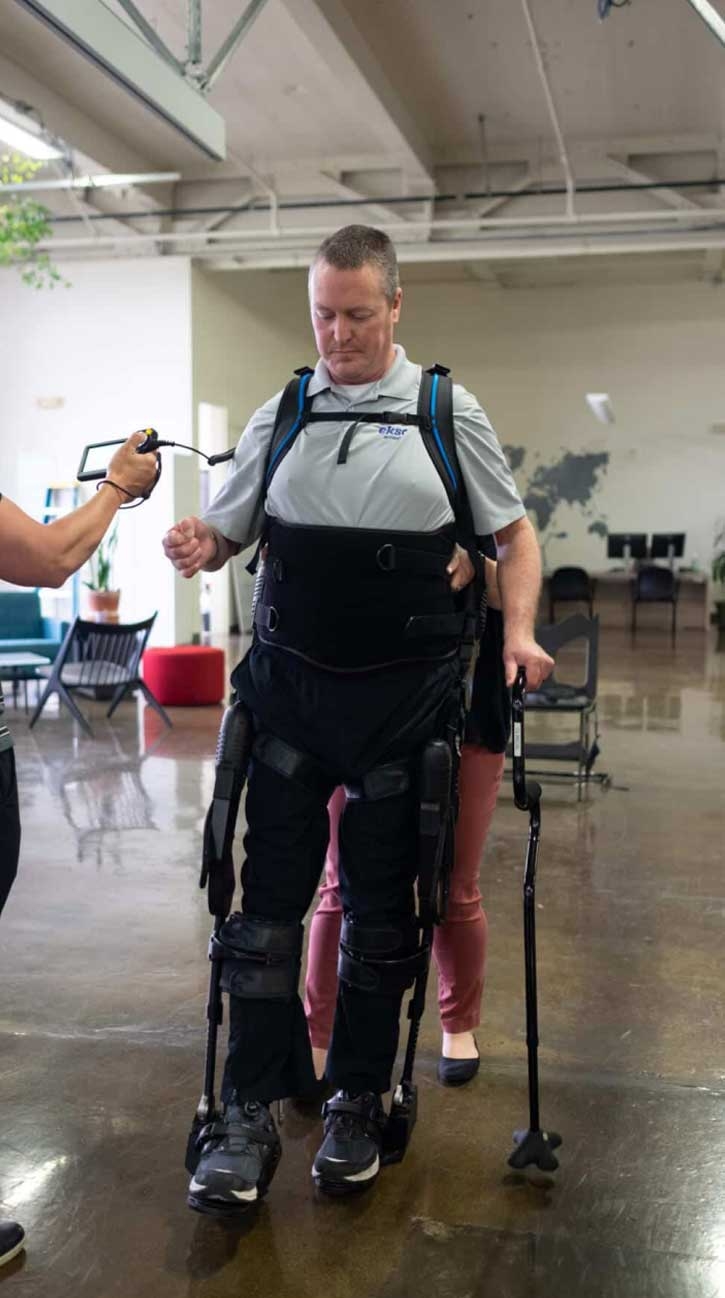Multiple sclerosis
Multiple sclerosis (MS) is one of the leading causes of disability in young adults and affects more than 1 million people in the US and over 2.8 million people worldwide. Although the incidence has risen 50% over the last 10 years, there are now treatments that can help slow the progression of the disease. Physical therapy is an important component of keeping those with MS as healthy and mobile as possible.

What is MS?
According to the National Institutes of Health, multiple sclerosis is a neurological autoimmune disease in which the immune system attacks the central nervous system. Over time, a person with MS may lose function as their immune system eats away at the protective covering of nerves, otherwise known as the myelin sheath. The resulting nerve damage slows or disrupts communication between the patient’s brain and body, often leading to loss of function and mobility.
Multiple sclerosis may produce a variety of symptoms including vision loss, pain, fatigue, impaired coordination, and gait deficits. MS affects individuals in varying ways and to varying degrees; symptoms, severity, and rate of progression may be different from person to person. Fortunately, some people suffer nearly no consequences from the disease while others may deal with chronic issues that greatly impact their quality of life.
In the case of those with severe effects, over-exertion can lead to disease advancement. With EksoNR®, the therapist can uniquely program the device for increased dosage of steps which may lead to increased activity tolerance, improved functional outcomes, increased endurance, and a better quality of life. EksoNR is particularly beneficial for this population to support therapeutic goals and in early studies has been shown to provide improved outcomes in balance, coordination, endurance, gait quality, and quality of life!
Disease course
There is no current known cure for multiple sclerosis, however, medication management and physical therapy can help manage symptoms, speed up recovery from relapses, and slow down the progression of the disease or reduce future relapses.
According to the Mayo Clinic, most individuals with MS have a relapsing-remitting disease course (RRMS) that includes periods of new or worsening symptoms with quiet periods of remission in between. It is thought that at least half of those with this type of MS eventually progress over 10 to 20 years to worsening symptoms with or without periods of remission. Those who no longer have quiet periods of remission now have secondary-progressive MS (SPMS). As the disease progresses, some individuals begin to lose mobility and encounter gait difficulties, but consistent exercise and walking can be a huge benefit and may slow progression. The third type of MS is primary progressive (PPMS) and is characterized by worsening neurological function without the early relapses or remissions that are common in the relapsing-remitting MS type. The biggest differences between PPMS and other types are that the typical age of onset is around 10 years later, people with PPMS may experience more issues with walking, and they may require increased assistance with activities of daily living.


Rehabilitation for
individuals with MS
Rehabilitative MS treatments are an important component of maintaining mobility and independence. These treatments are designed to strengthen weakened muscles, improve range of motion, maintain endurance and cardiovascular health, and help slow the progression of the symptoms of MS. Advanced technology, like EksoNR, can provide motivation to continue exercising and offer an engaging therapy option. It can also allow individuals to work on high dosage without over-exertion which can be detrimental for MS patients.
EksoNR is the only exoskeleton available that is cleared by the Food and Drug Administration for rehabilitation after a multiple sclerosis diagnosis. It provides therapists the opportunity to work with patients’ brain plasticity and retrain their muscles and brains to maintain or regain lost mobility. Patients with MS who use EksoNR are kept apprised of their progress and must actively participate in the process to succeed. This direct involvement and positive progress reports can have a profound psychological effect on patients, increasing their odds of improving outcomes and regaining lost strength and mobility in addition to offering them hope. If you are a patient looking to share your experience or looking to use EksoNR, please visit our Patient & Caregiver page.
Patient & Caregiver Page